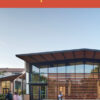Each season, arcCA DIGEST asks experts in the season’s theme to identify emerging issues, problems, opportunities, circumstances, etc., to which they believe architects should be alert. For this season’s theme—what motivates people to enter the profession of architecture—the experts are California architecture students. We surveyed students in both professional degree programs and pre-professional, community college programs, asking them:
- When you first entered architecture school, what were your reasons for studying architecture?
- At this point in your education, what are your reasons for studying architecture?
- As you look ahead to entering architectural practice, what hopes, expectations, or concerns – for your own experience or for architecture itself – would you like the profession to be alert to?
We received 74 responses, from students in the professional degree programs at California Baptist University (our newest accredited program), California College of the Arts, Cal Poly San Luis Obispo, USC, and Woodbury University; from pre-professional programs at College of Marin, College of San Mateo, Fresno City College, Glendale Community College, Palomar College, and Southwestern College; and one from an exchange student from the University of Damascus.
Selected answers to Question 3, lightly edited, follow. The collected responses to all three questions are available as a PDF here.
In architectural practice, having a strong voice and promoting change is significant. As an upcoming professional in such a competitive field, directly out of an educational environment, having a fresh voice will hopefully provide positive incentive to a collaborative team. I expect long hours and concentrated work. It will not be easy, but being surrounded by so much charisma and expertise thoroughly appeals to me. – Nicholas J. Haddad, Woodbury University
I think one thing that architects need to constantly be aware of is our impact on our communities and how we can help improve them. We have tremendous gifts, talents, and influence, and we need to use all of it to the benefit of others. – Nolan Brown, Woodbury University
Architecture is a tense career, but we’re also human. I’ve worked in four different firms for my internship program, and I can see how work culture can make a huge impact on how people perform and design. – Genevieve Enriquez, Woodbury University
Sometimes I worry about architecture losing its identity. – Anonymous, California College of the Arts
I’m concerned . . . that architecture will be co-opted by technologists who have no regard for space, experience, or human creativity, and architecture will instead be relegated to algorithmic pseudo-logic – a tool rather than a professional art. – Pearce Gillespie, California College of the Arts
I am concerned that architecture firms cultivate an unhealthy work-life balance and do not pay their employees fairly for their time and effort. – Sam Gherrity, University of Southern California
I am looking at access and privilege. We need more community spaces . . . that are accessible and welcoming to all ranges and ages of people. Spaces for workshops, organizing, childcare, and a respite from the bustle of city living. – Anonymous, Glendale Community College
I hope the evolution of architecture continues to highlight environmentalism through design and sustainable building practices. – Joseph Nunez, Palomar College
Climate change, housing crisis, sustainability, equality. – Nicole Kuo, California College of the Arts
I would really like to break away from the standardized “architects” and norms that are being taught to us. I would truly love to not build for the 1%. – Anonymous, California College of the Arts
I know that there is so much to learn in this field, I don’t know where to start. – Jorge Alcaraz, Southwestern College
To not get stuck detailing bathrooms. – Victor Robles, California Baptist University
It would be of interest to me if there were ways of explaining things in simplest terms. There should be a class for architect vocabulary. – Penina Malia Desmond, Southwestern College
I want to make sure we don’t innovate ourselves out of a job. – Mark Halajian, California Baptist University
I think that diversity within the field should continue to expand, and people should become attuned to the marginalization of certain groups that we are working with, as well as building for. I think that architecture should continue to be more than just a building, but more an idea and a story that will impact its users. – Anonymous, University of Southern California
One concern I have for the profession of architecture is that we as architects have to know the equivalent of what a surgeon needs to know about the human body, but surgeons get compensated for their expertise, whereas architects do a lot more work than what we get compensated for. – Daniel Keinert, California Baptist University
Awareness of workaholism. It is something prevalent in the field that makes me consider leaving the field. – Anonymous, California Baptist University
I get nervous that, when I work for an office, I will only have the capacity to engage in some components rather than be allowed to experience a little bit of everything to grow as a designer myself. – Joni, Palomar College
I’d like to learn more of architects themselves, to provide us students with experiences they’ve encountered and really just mentor us for what is ahead. – Maricarmen Valdez, California Baptist University
I worry that the virtues I have been attempting to develop while in school, such as courage, honesty, and humility, will be diminished once out in the field. I hope to maintain the honesty we are taught here at school, and I hope to not enter the professional world with the intention of just marketing myself for the sake of “making it.” Throughout my time in school, we have been challenged to seek what architecture truly is and the virtues and vices attached with this line of work. This discussion should not end once I graduate. I hope to continue the dialogue in every workplace I encounter. – Anonymous, California Baptist University
I just hope that starting a family doesn’t interfere too much with my career progression. – Ellie Jones, California Baptist University
How technology will forever change architecture with the use of big data. – Michael C. Clarke, University of Southern California
Architecture is about collaboration, and studio class is where the profession is not only learned, but it is the environment that architects work in during their professional practice. I hope that the collaborative studio environment continues and only gets more influencing because architecture is not about competitiveness between individuals. I also hope that future projects really push environmental and sustainable designs because architecture should be about making something useful in more ways than one and be about giving back to the community it is built in. – Kiara Pearl Hiatt, Palomar College
From arcCA DIGEST Season 5, “Motivation.”





